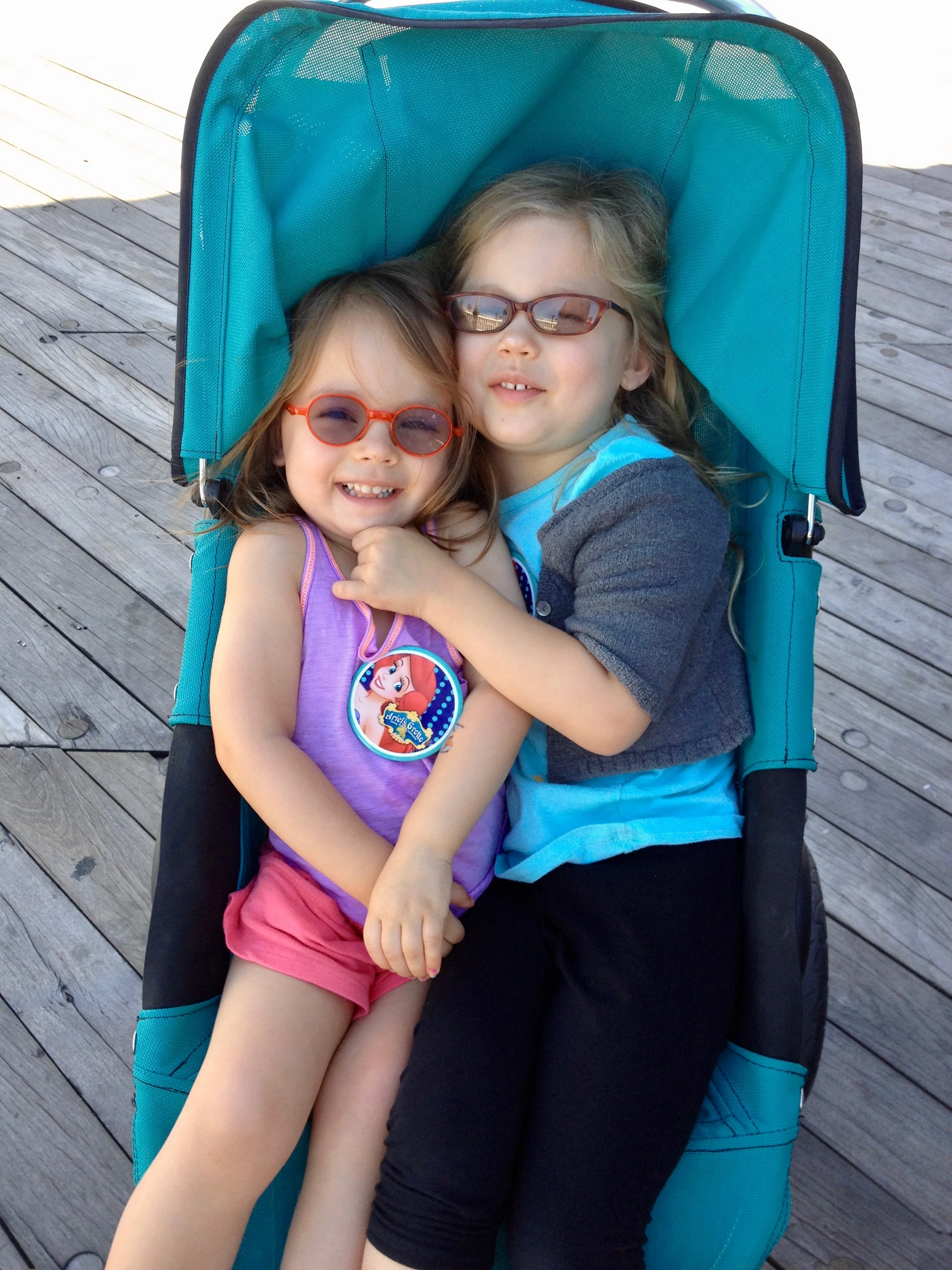Parents have a PhD in remembering firsts. I remember the first time I realized my daughter needed glasses as if it were yesterday. I sometimes wondered if my eldest had an issue with her eye turning inward. I chalked this up to paranoia as the pediatrician didn’t see anything and her eyes looked normal most of the time. After all, don’t all of our babies go through a multitude of check-ups at birth? I had also somehow forgotten that my mother had a childhood eye condition that involved patching, a technique where you cover one eye as a means of strengthening the weaker one. I didn’t realize that eye conditions can be hereditary, but also completely unpredictable (my mother had eye issues, but I have near perfect vision).

At drop-off one morning, my daughter's preschool teacher pulled me aside to ask if she had ever had her eyes checked. I was a bit taken aback as she was only 3 years old and answered no. The teacher told me that during a class exercise the day before, as the whole class looked up, she noticed that one of my daughter'’s eyes moved slower than the other one. I sat there floored, suddenly realizing she may have a significant issue with her vision that I knew nothing about.
I immediately called our pediatrician, asked for a referral and made an appointment. When that day came, after undergoing the very uncomfortable eye dilation (I will do a future post on tips for tackling that at a young age), I was told my daughter not only needed needed glasses, but that she had:
-
Strabismus (eye misalignment)
-
Amblyopia (aka lazy eye) In her case, one eye had worse vision than the other, causing her brain to have trouble working with both eyes together. If untreated, this condition can cause the brain to shut the weaker eye off - permanently.
-
Accommodative esotropia, eye crossing that is caused by the effort needed to focusing as they try to see clearly.
I looked at the doctor and just cried. I was looking for some comfort but at the same time acknowledged we were a bit behind in figuring this out. He couldn't really say much, just gave me the prescription and guided me to the glasses display to checkout glasses. I was embarrassed that I had missed this (how could I not tell that my daughter couldn't see?!) and mortified that my child had been functioning on her own without being able to tell me what was going on. Her prescription wasn’t insignificant. On top of that, I was worried she would be stuck with a crossed eye or lost vision.
Over the years, I’ve spoken to other parents who felt the same sense of failing their kids when it wasn’t obvious they needed help seeing. All I can say is, if you’ve just found out your kid needs glasses, don’t panic. Whenever you’ve figured this out, good job. You’re on the right path and your kid will benefit. If you are reading this article and you just realized that your kid is school aged and hasn’t had an eye exam, also no need to panic. Call your pediatrician and ask for a referral - they have relationships and will be able to send you to someone great. Many pediatricians will conduct a baseline eye exam during your child’s routine physical.
It is currently estimated that one in four kids in the United States needs corrective eyewear, so you are nowhere near alone...a lot of us are still figuring it out.
And good news, if you child does need glasses, we’re here to help! That’s truly why I founded Fitz Frames. I wanted to teach parents about the importance of early eye health intervention, so they wouldn’t experience the same caught-off-guard feeling I did, and to help kids feel better about getting glasses that look and feel good on them. We’re all in this together, one frame at a time. :)
Xo,
Heidi
P.S.Share your #worthframing moments with us on Instagram @fitzframes
